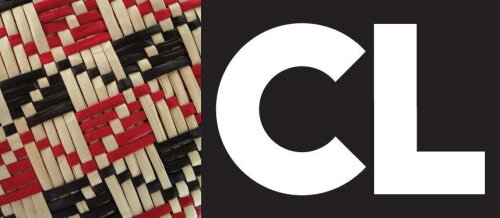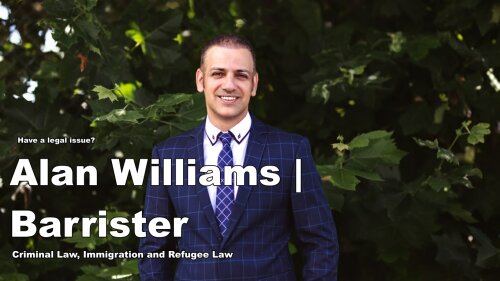Best DUI & DWI Lawyers in New Zealand
Share your needs with us, get contacted by law firms.
Free. Takes 2 min.
Or refine your search by selecting a city:
List of the best lawyers in New Zealand
About DUI & DWI Law in New Zealand:
In New Zealand, driving under the influence (DUI) and driving while intoxicated (DWI) refer to operating a motor vehicle while under the influence of alcohol or drugs. Both offenses are considered serious and can lead to fines, license suspension, and even imprisonment.
Why You May Need a Lawyer:
You may need a lawyer if you have been charged with a DUI or DWI in New Zealand. A lawyer can help defend your case, negotiate for a reduced sentence, and ensure your rights are protected throughout the legal process.
Local Laws Overview:
In New Zealand, the legal blood alcohol limit for drivers 20 years and over is 50mg of alcohol per 100ml of blood. For drivers under 20, the limit is zero. Police have the authority to administer breath and blood tests to determine if a driver is over the legal limit.
Frequently Asked Questions:
1. What are the penalties for a DUI or DWI in New Zealand?
The penalties for a DUI or DWI in New Zealand can include fines, license suspension, imprisonment, and mandatory attendance in alcohol or drug education programs.
2. Can I refuse to take a breath or blood test in New Zealand?
Refusing to take a breath or blood test in New Zealand can result in fines, license suspension, and other penalties. It's advisable to comply with police requests for testing.
3. How can a lawyer help me with my DUI or DWI case?
A lawyer can provide legal advice, represent you in court, negotiate with prosecutors on your behalf, and work to achieve the best possible outcome for your case.
4. Will I lose my license if I am charged with a DUI or DWI in New Zealand?
It's possible to lose your license if you are charged with a DUI or DWI in New Zealand. The length of license suspension will depend on the circumstances of your case.
5. Is it possible to have a DUI or DWI charge expunged from my record in New Zealand?
In New Zealand, DUI and DWI charges cannot be expunged from your record. They will remain on your criminal record permanently.
6. Can I represent myself in court for a DUI or DWI case in New Zealand?
While it's possible to represent yourself in court, it's highly recommended to hire a lawyer with experience in DUI and DWI cases. A lawyer can navigate the legal process more effectively and increase your chances of a favorable outcome.
7. Will I have to attend alcohol or drug education programs if charged with a DUI or DWI in New Zealand?
It's common for individuals charged with a DUI or DWI in New Zealand to be required to attend alcohol or drug education programs as part of their sentencing.
8. How long will a DUI or DWI charge stay on my criminal record in New Zealand?
DUI and DWI charges will stay on your criminal record permanently in New Zealand.
9. Are there options for plea bargains in DUI or DWI cases in New Zealand?
Plea bargains may be possible in DUI or DWI cases in New Zealand. A lawyer can help negotiate with prosecutors for reduced charges or penalties.
10. How can I find a lawyer for my DUI or DWI case in New Zealand?
You can find a lawyer for your DUI or DWI case in New Zealand by contacting legal referral services, searching online directories, or asking for recommendations from friends or family.
Additional Resources:
For more information on DUI and DWI laws in New Zealand, you can visit the New Zealand Ministry of Justice website or contact your local Citizens Advice Bureau for assistance.
Next Steps:
If you require legal assistance for a DUI or DWI case in New Zealand, it's important to contact a qualified lawyer as soon as possible. Your lawyer can provide guidance on your legal rights and help you navigate the complexities of the legal system.
Lawzana helps you find the best lawyers and law firms in New Zealand through a curated and pre-screened list of qualified legal professionals. Our platform offers rankings and detailed profiles of attorneys and law firms, allowing you to compare based on practice areas, including DUI & DWI, experience, and client feedback.
Each profile includes a description of the firm's areas of practice, client reviews, team members and partners, year of establishment, spoken languages, office locations, contact information, social media presence, and any published articles or resources. Most firms on our platform speak English and are experienced in both local and international legal matters.
Get a quote from top-rated law firms in New Zealand — quickly, securely, and without unnecessary hassle.
Disclaimer:
The information provided on this page is for general informational purposes only and does not constitute legal advice. While we strive to ensure the accuracy and relevance of the content, legal information may change over time, and interpretations of the law can vary. You should always consult with a qualified legal professional for advice specific to your situation.
We disclaim all liability for actions taken or not taken based on the content of this page. If you believe any information is incorrect or outdated, please contact us, and we will review and update it where appropriate.
Browse dui & dwi law firms by city in New Zealand
Refine your search by selecting a city.















